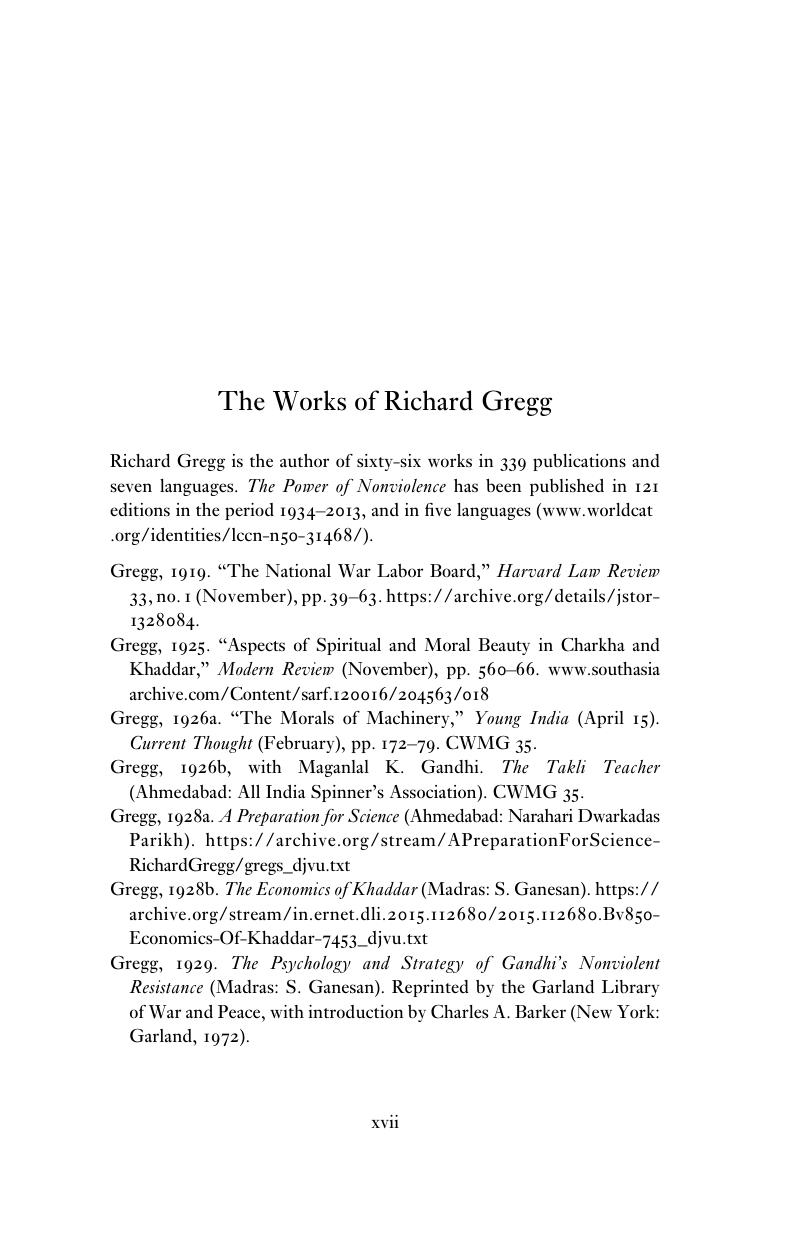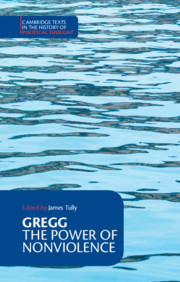Book contents
- The Power of Nonviolence
- Cambridge texts in the History of Political Thought
- The Power of Nonviolence
- Copyright page
- Contents
- Acknowledgments
- Chronology
- The Works of Richard Gregg
- Editor’s Introduction
- Bibliography
- The Power of Nonviolence
- 1 Modern Examples of Nonviolent Resistance
- 2 Moral Jiu-Jitsu
- 3 What Happens
- 4 Utilizing Emotional Energy
- 5 How is Mass Nonviolence Possible?
- 6 The Working of Mass Nonviolent Resistance
- 7 An Effective Substitute for War
- 8 The Class Struggle and Nonviolent Resistance
- 9 Nonviolence and the State
- 10 Persuasion
- 11 The Need for Training
- 12 Training
- Notes
- Index
- Cambridge Texts in the History of Political Thought
- References
The Works of Richard Gregg
Published online by Cambridge University Press: 05 November 2018
- The Power of Nonviolence
- Cambridge texts in the History of Political Thought
- The Power of Nonviolence
- Copyright page
- Contents
- Acknowledgments
- Chronology
- The Works of Richard Gregg
- Editor’s Introduction
- Bibliography
- The Power of Nonviolence
- 1 Modern Examples of Nonviolent Resistance
- 2 Moral Jiu-Jitsu
- 3 What Happens
- 4 Utilizing Emotional Energy
- 5 How is Mass Nonviolence Possible?
- 6 The Working of Mass Nonviolent Resistance
- 7 An Effective Substitute for War
- 8 The Class Struggle and Nonviolent Resistance
- 9 Nonviolence and the State
- 10 Persuasion
- 11 The Need for Training
- 12 Training
- Notes
- Index
- Cambridge Texts in the History of Political Thought
- References
Summary

- Type
- Chapter
- Information
- The Power of Nonviolence , pp. xvii - xxPublisher: Cambridge University PressPrint publication year: 2018



